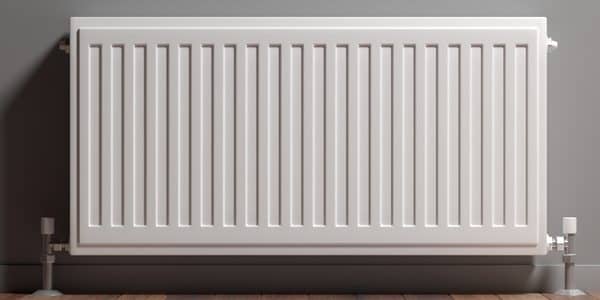For most people, the boiler and central heating system only become talking points when they are not working property. Nobody enjoys being without heat and hot water, especially in winter. Unfortunately, if you do not service your boiler regularly, the chances of something malfunctioning could be a real possibility, and typically, this will probably happen when the weather is at its most unforgiving.
When the autumn weather takes hold, professional heating engineers usually experience a rapid increase in calls relating to central heating issues, as people turn on their boilers after a long summer of being switched off. Most of the time, problems with your central heating or boiler can be solved quickly and simply. However, sometimes it is necessary call in a professional to repair the fault. We have outlined below some common central heating problems that we come across, and how we would go about repairing them.
During the summer, try and turn your heating on every now and then, just for a brief period to check it is working properly. Finding any problems before the wintry weather sets in will ensure you won’t be without heat when you rely on it most. An annual boiler service will help identify any potential issues too – the summertime (when heating engineers are less busy) is the perfect time to have a service conducted.
Daniel Tong, Heating Engineer at Maintracts

Typical central heating problems
and solutions
Radiators are cold in places
Cold spots on a radiator, whether at the bottom or on the top, indicate that there is an obstruction somewhere which is preventing them from working efficiently. However, these cold spots can be caused by different things and will therefore have different fixes:
- Cold at the bottom of the radiator
this is usually caused by something restricting the flow of water such as rust, scale of a build-up of sludge. If you have an open-vented system, we will typically remove the debris from the system by adding some sludge remover. However, if you do not have an open-vented system, need to flush the pipes which is a bigger job. - Cold at the top of the radiator
this is typically due to air trapped in the system. Switching off the heating system and bleeding the radiators usually fixes the problem.
Hot and cold radiators across floors
If you are suffering with cold radiators on the top floor of your home but not on the bottom, or visa versa, you will likely find that something is obstructing the water from flowing around the system properly. In this scenario, we would initially check that all the cold radiators have their valves open or open the valves further if needed.
If the rads upstairs are cold this could be cause by low boiler pressure and therefore, we will add more water into the system in a bit to get the pressure where it should be. If the cold rads are on the ground floor, it could be that your pump is faulty and needs repairing/replacing. You may also need to descale your central heating system to ensure any blockages are removed.
Gurgling noises coming from the boiler
If you are hearing unusual gurgling, banging, or hissing noises coming from your boiler then you need to investigate. Your boiler may be overheating which can be cause for concern.
If the sounds persist after turning off the boiler, the problem lies with trapped air rather than the pilot light. The excess air will need to be vented from the system. Descaling the boiler is another option, but not all boiler system types can be descaled. Your professional heating engineer will advise.
In some cases, hissing noises are caused by a lack of water supply reaching the feed and expansion tank. This will only be the case if you have a regular or system boiler that houses a tank in the loft (combi boilers do not have expansion tanks). Check sludge build-up, a faulty valve or a frozen water supply pipe isn’t causing the problem too.
No hot water or heat
If your heating system isn’t working at all and you are without heat and hot water, you will be keen to get things up and running as quickly as possible. It might sound obvious, but always check first that your central heating system is turned on! You’ll be amazed at how many calls we get from homeowners whose spouse has turned the heating off without them knowing!
It may be that a fuse has blown and needs replacing. Or you have a loose wire that needs the attention of an electrician. Failing all those options, check to see if the pilot light on your boiler is on. If it has gone out, it will need relighting. It could even be a problem with your gas supply and its access to your system. Other problems and solutions causing you to have no hot water or heat could be:
- Malfunctioning pump – switching it off, letting it cool and then restart the pump.
- Boiler pressure issues – the boiler’s pressure gauge will indicate when it is too high. If the pressure is too low, water will need adding to the system until it is ‘normal’ again.
- Frozen condensate pipe – If you have a combi (condensing) boiler it will have a condensate pipe that can freeze when temperatures plummet. If this is the case, it will need thawing out and insulating to prevent it from happening again.
No hot water but the central heating is working ok
If you have no hot water, but your heating seems fine, a professional heating engineer will check the following:
- The thermostat is not set too low.
- The motorised valve is open. If you have a motorised valve fitted to your cylinder, check it is open.
- There is no trapped air in the hot water cylinder (if you have one). This will need bleeding.
Leaking pipes
Leaking pipes can be a real nuisance and are quite common. However, the good news is they are easy to fix. If tightening up the joint doesn’t do the job, applying sealant will be necessary. For a long-term fix (which would be advisable as soon as possible), replace the leaky pipe.
Recurring overflows
If you have a system or regular boiler (not a combi) – the kind that get their water supply from a tank in the loft, the water tanks will have a ballcock to regulate the water flow. Sometimes, the ballcock can jam, causing an overflow that runs non-stop. The Jammed ballcock will need freeing before the flow of water is running smoothly again.
An old boiler
As in life, all good things must come to an end. Sometimes, it is the case that an old, well used boiler has run its course, despite being well maintained. If a boiler has become prone to breakdowns and recurring faults, it may be more economical overall to replace the boiler. We always recommend getting yoru boiler serviced at least one a year by a Registered Gas Safe Engineer, this will help deal with any problems in their preliminary stages before they escalate into costly ones. It should also prolong the life of yoru boiler.
If you are looking for a Gas Safe Registered Engineer to solve a heating or boiler issue in your property, our team are here to help. Don’t just take our word for it, take our look at what our customers say
Make sure you make a note of our emergency boiler repair number too – in case you need to speak to one of our engineers immediately – 020 868 22244.

